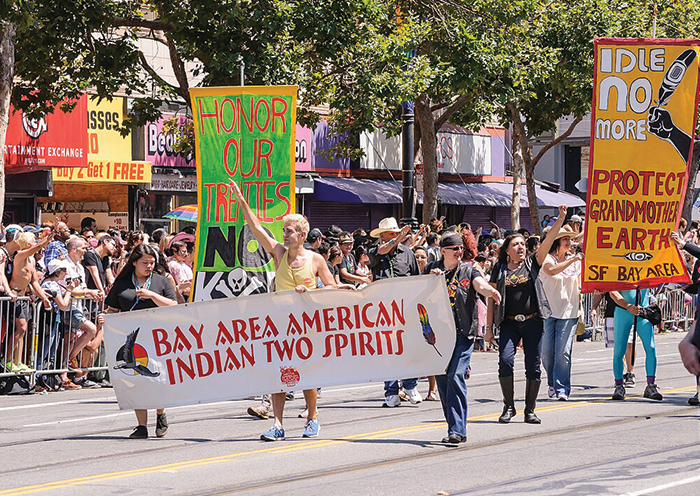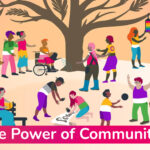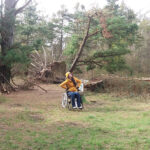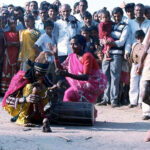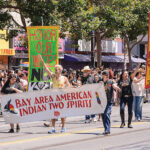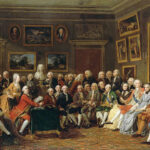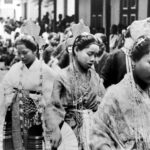Indigenous Two-Spirit Traditions
In recent decades, there has been a growing recognition of the rich and diverse understandings of gender identity among Native American communities; an understanding that predates Western concepts of gender and sexuality by centuries. Among these traditions, the identity of Two-Spirit individuals holds a particularly profound and culturally significant place.
While Western societies have historically enforced a rigid gender binary, many Indigenous cultures in North America recognised a spectrum of gender identities and roles long before European colonisation. In numerous Native American tribes, gender was seen not as a strict biological determinant but as a social, spiritual, and communal role. People who did not fit neatly into the categories of “man” or “woman” were often accepted and even revered in their communities.
These individuals held unique positions within their tribes. Some were spiritual leaders, healers, artists, or matchmakers. They frequently performed roles that bridged masculine and feminine spheres, making vital contributions to the cultural, and spiritual lives of their people. Their identities were not viewed through the lens of deviation, but rather through one of sacredness, and balance.
The term Two-Spirit is a modern, pan-Indigenous term that emerged in 1990 at the third annual intertribal Native American/First Nations gay and lesbian conference held in Winnipeg, Canada. It was deliberately chosen in English as a translation of the Anishinaabemowin phrase niizh manidoowag, meaning “two spirits.”
This term was adopted as a means of unifying and affirming Indigenous people, who embody both masculine and feminine spirits. Importantly, it also served as a rejection of the Western labels such as “gay,” “lesbian,” “transgender,” and “bisexual,” which often failed to reflect the cultural and spiritual contexts of Indigenous gender and sexuality. Two-Spirit became a decolonising identity—a way for individuals to reclaim their place within their communities, grounded in tradition and tribal values.
Across various tribes—including the Navajo, Lakota, Crow, Zuni, and many others, there are records of individuals who would now be understood as Two-Spirit. The names for such individuals vary from tribe to tribe, each carrying its own cultural context and significance. For instance, the Navajo term nádleehi, refers to someone who is “one who is in a constant process of change,” reflecting a wonderfully fluid understanding of gender.
Two-Spirit individuals regularly held respected ceremonial roles, and were seen as mediators or caretakers of tradition. They played integral parts in community wellbeing, not only through their work but also through their embodiment of balance, representing harmony between feminine and masculine energies.
Colonisation brought with it Christian missionary influence, boarding schools, and aggressive assimilation policies, all of which targeted Indigenous ways of life, including gender and sexual diversity. Two-Spirit people were marginalised, ostracised, and in many cases, erased from tribal histories.
However, over the last several decades, there has been a powerful resurgence of Two-Spirit identity. Through activism, cultural revival, and intergenerational knowledge-sharing, many Indigenous communities are reclaiming the honour and visibility of Two-Spirit people. Powwows and gatherings now often include Two-Spirit events, and some tribes are actively restoring the ceremonial roles once held by them.
The term Two-Spirit is far more than a label; it is a bridge between past and present, offering Indigenous people a culturally grounded way to articulate their gender and spiritual identity. It acknowledges a pre-colonial understanding of gender that was rich, inclusive, and deeply respectful. Today, as more communities recognise the sacred role of Two-Spirit individuals, they are not only reclaiming history, they are shaping a more inclusive future rooted in tradition, honour, and healing.
By InSapphoWeTrust from Los Angeles, California, USA – Bay Area American Indian Two Spirits, San Francisco Pride 2013, CC BY-SA 2.0, https://commons.wikimedia.org/w/index.php?curid=79751626


